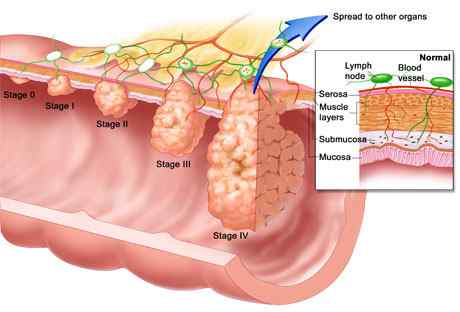
Colon and rectal cancer kill 51,730 people a year in the United States. each year there are 102,900 new cases of colon cancer and 39,670 new cases of rectal cancer diagnosed.“My biggest mistake was not taking the symptoms and signs seriously,” said John Porter, 53, a Fort Wayne attorney, who was diagnosed with Stage 2 rectal cancer in fall 2009. Porter says he didn’t see a doctor despite having had a troubling change in his lower digestive tract for a year.“I was self-diagnosing myself,” Porter said. the symptoms persisted, and finally Porter saw his doctor. his doctor immediately sent him to a gastroenterologist, who scheduled him for a colonoscopy. Porter says he recalls waking up with the doctor standing over him saying, “mr. Porter, this is very bad, very bad indeed,” Porter recalled.According to the National Cancer Institute, in the U.S., “Colorectal cancer is the fourth-most-common cancer in men, after skin, prostate and lung cancer. it is also the fourth-most-common cancer in women, after skin, breast and lung cancer.” more then 90 percent of the people diagnosed with this disease are over 50. Risk factors include a family history of the disease, a previous cancer, diets high in fat and low in fiber, and smoking.when he was diagnosed, Porter was overweight, had been eating a high-fat diet and was not exercising.Nancy Ehmke, a registered nurse at Parkview Comprehensive Cancer Center, said few people realize inherited cancers are a small fraction of those diagnosed. for most people, diet, exercise and environmental factors are the culprits.“One of our goals at Parkview is to help people try and prevent cancer,” Ehmke said. the staff uses a team approach to decide on the best treatment for each cancer patient. from surgeons to dietitians, choices are made for the best outcome.Porter said he couldn’t have had better care. He received a month of chemotherapy and radiation to shrink the large tumor, and after a seven-week recovery he had surgery around Thanksgiving. Before surgery doctors discovered he had diabetes and high blood pressure.Porter was lucky. He made it through surgery, losing 12 1/2 inches of his colon, but the surgeon did a full bowel resection. Since his surgery Porter has dropped 50 pounds.He has is controlling his diabetes through his diet, and his blood pressure has also been brought under control.“At my last checkup I was told everything looked good,” he said.the Colorectal Awareness Network will host “Take Charge of your Health” at Carew Medical Center on Thursday as part of Colorectal Cancer Awareness month. There will be free screenings and services checking for asthma, high blood pressure, bone density, EZ detect colon- rectal kits, glucose, mammograms, oral screenings, prostate specific Antigen (PSA) blood tests, skin cancer, smoking cessation and vision.Porter encourages people to get a colonoscopy. After he was diagnosed he said he called all his friends from college and urged them not to wait too long, as he did.Ehmke says a colonoscopy is the golden measure for colorectal health. By using it doctors can find and remove developing polyps before they become cancerous. People who have no family history of colorectal cancer should get them every 10 years starting at age 50. for those with a family history, doctors may recommend starting younger and repeating every five years.“a colonoscopy may be truly unpleasant, but it’s worthwhile, and it’s only a momentary passing discomfort,” said Porter.